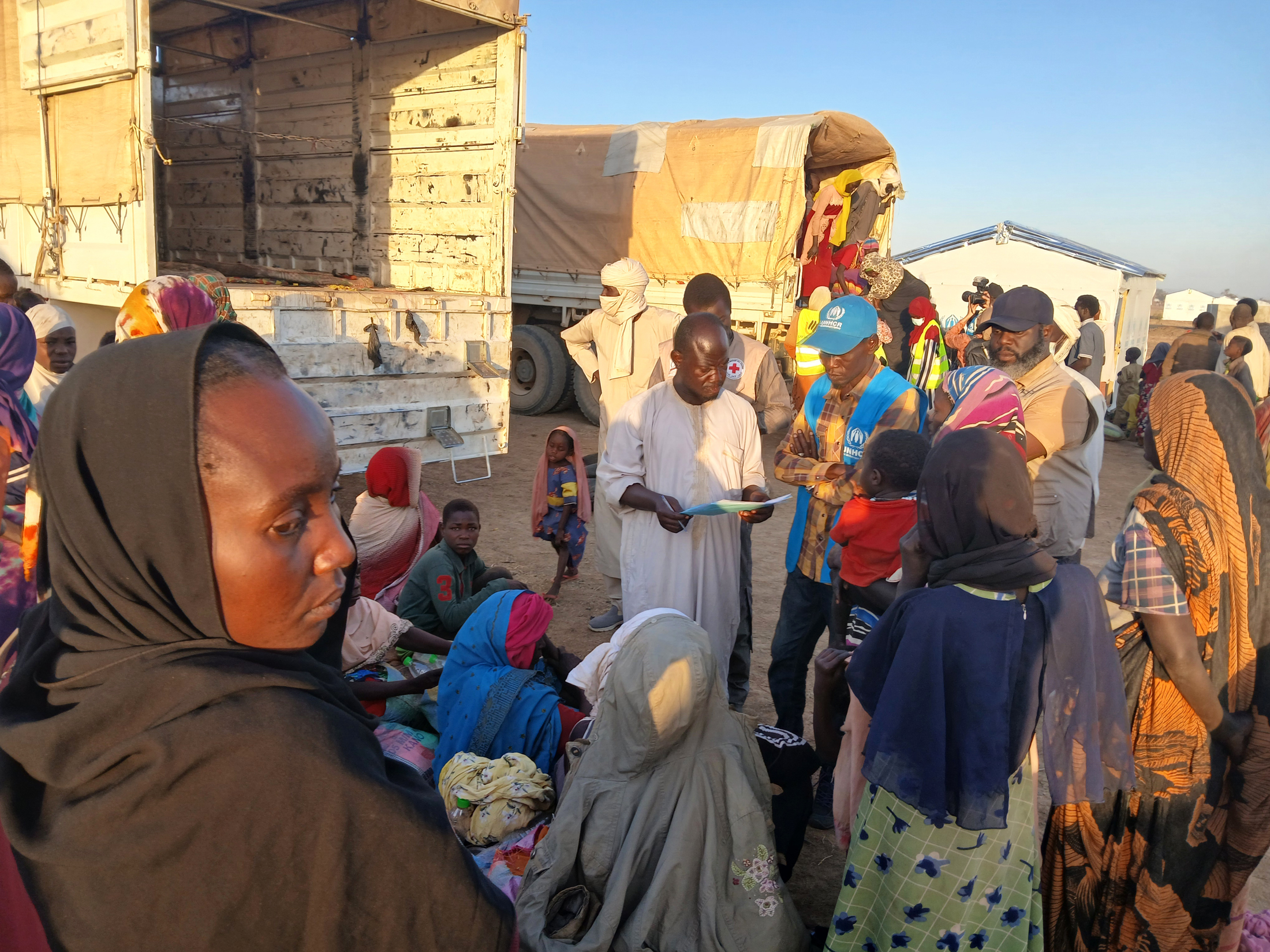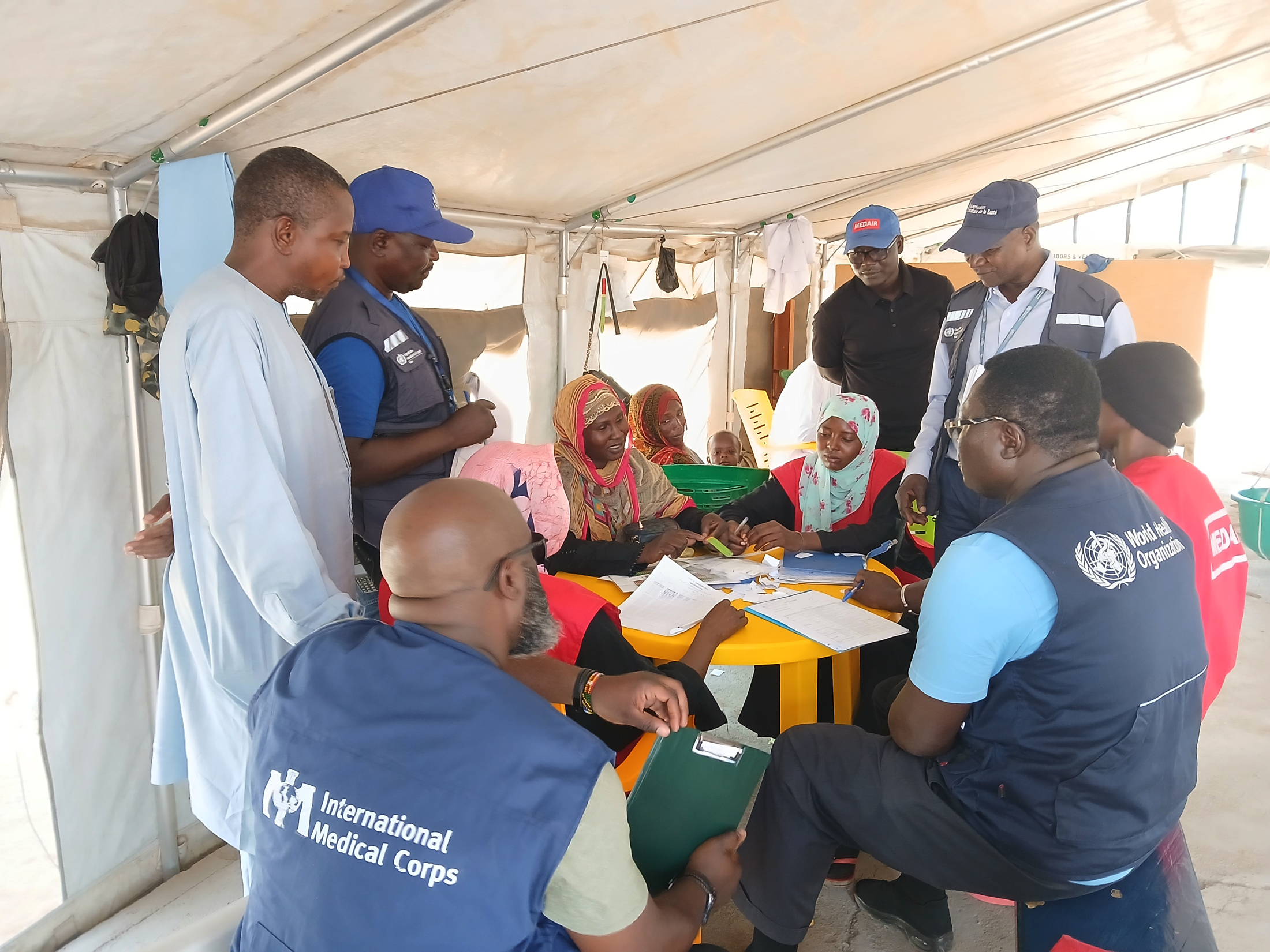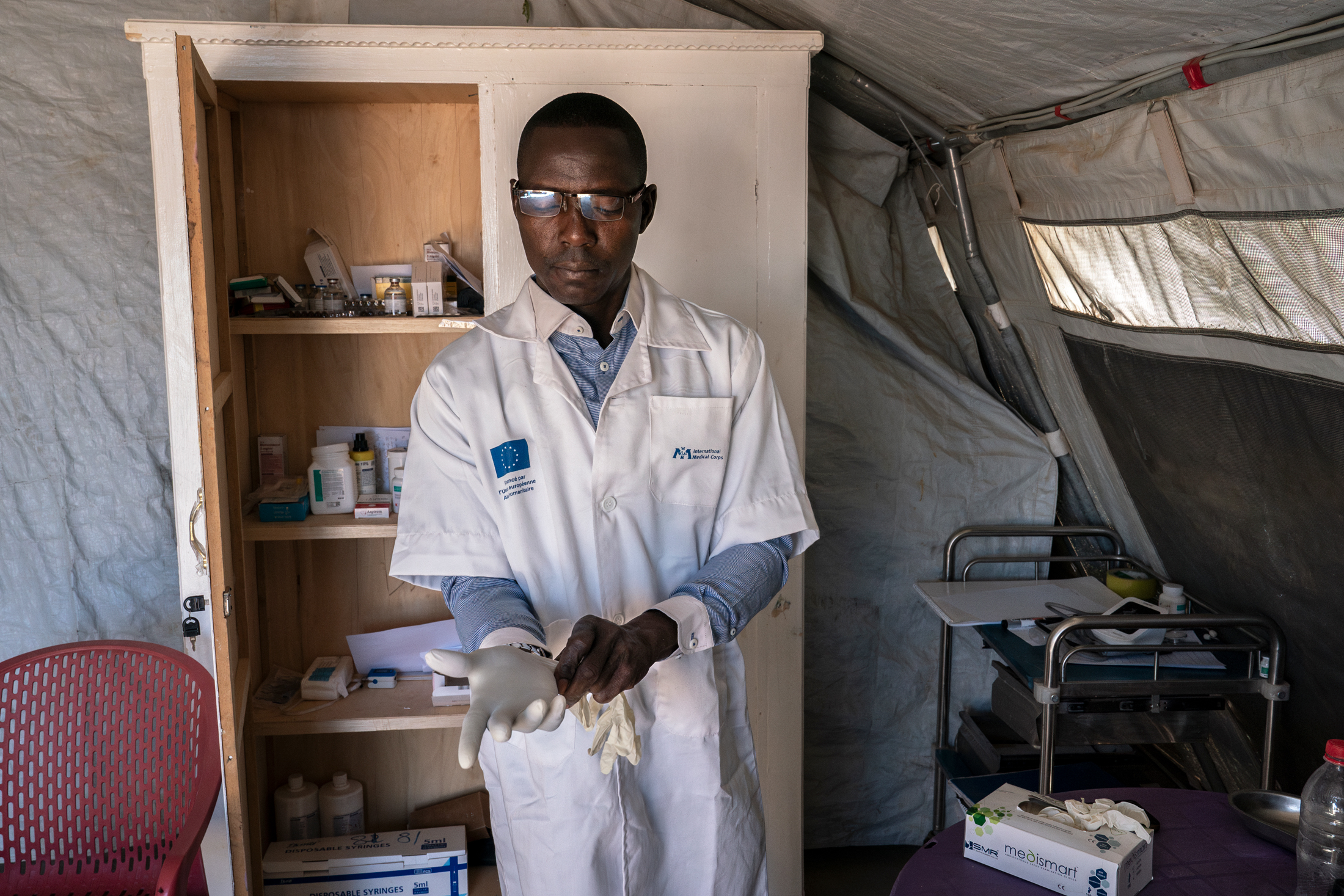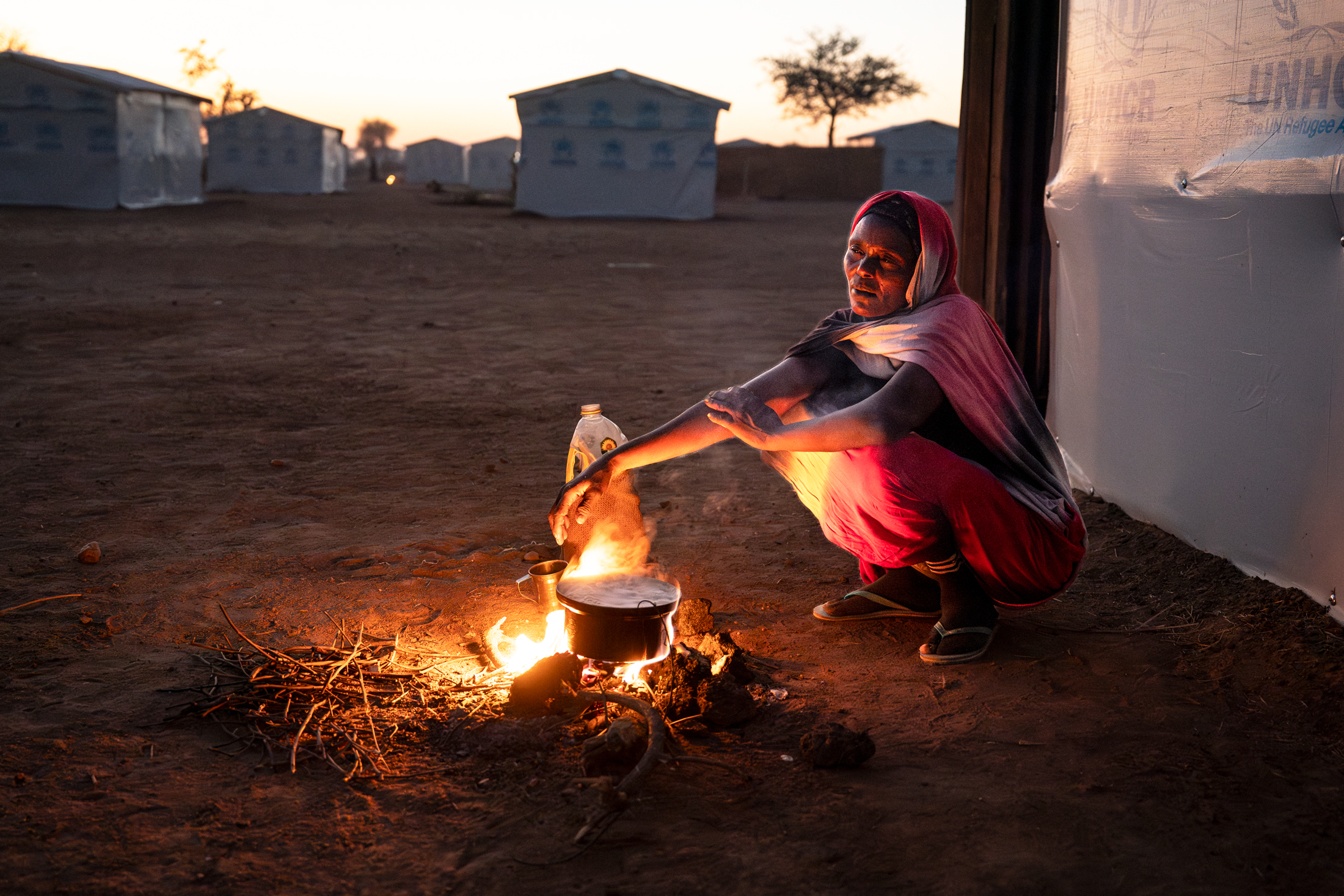On July 13, when a nurse from International Medical Corps’ health centre in Dougui refugee camp notified our Field Site Coordinator, Dr. Cimanuka Germain, of a patient presenting cholera-like symptoms, Dr. Germain already was prepared to sound the alarm and start the outbreak response. As more than 20,000 refugees each month were fleeing historic violence in neighbouring Sudan, where cholera was already spreading, our team had spent the previous months preparing for the inevitable.
Almost three months after that initial notification, thanks to the quick work of health professionals like Dr. Germain, the Chad Ministry of Public Health (MoPH) and our humanitarian aid partners, Dr. Germain announced in an internal group chat: “Dears, as of today, we have completed a total of 12 consecutive days without any new cholera patient admissions in Dougui.”

The first cholera pandemic began in 1817, lasted seven years and spread from India to Europe—the only cholera pandemic that did not reach North America. Since then, there have been six additional cholera pandemics—including the current cholera pandemic, which began in 1961—each of which lasted for years and affected every corner of the globe. In 2024, annual cholera cases rose 5% while annual deaths from the disease increased by 50%, killing more than 6,000 people despite the available treatments and prevention measures—making the success of our medical intervention in Chad and its lifesaving implications that much more notable.

May 27–July 12: Medical Preparations and Training
On May 27, the Federal Emergency Operations Centre in Sudan issued a report stating that officials had recorded more than 2,700 cholera cases and 172 cholera-related deaths over the previous week. Soon afterward, the Chadian MoPH and World Health Organization (WHO) issued separate statements, warning that the epidemic could spread to Chad. Experts voiced concern that, as refugees fled Sudan, the crowded and unsanitary camps where they sheltered near the Chad–Sudan border would foster a devastating outbreak of cholera.
In these camps and neighbouring host communities, the widespread lack of access to safe drinking water increases the likelihood that people will eventually contract cholera. In eastern Chad, some refugees purchase water from vendors who obtain it from unsafe sources, such as wells or traditional boreholes. Refugees, returnees and host-community members use stagnant water to wash dishes and clothes. In their cramped living conditions, children also play in water contaminated with sewage and wastewater. Meanwhile, rising temperatures increase water alkalinity, salinity and warmth—all of which create an ideal environment for the Vibrio cholerae bacteria to multiply.

Training underpins all that we do at International Medical Corps, So when our team in Chad saw the warning signs of a cholera disaster, Dr. Germain began hiring and training a multidisciplinary rapid-response team of doctors, nurses, lab technicians, mental health counsellors, sanitation specialists and psychosocial support experts. We communicated with our supporters early, letting them know that there was an impending risk and that their action could save lives. With their quick response and our healthcare team’s expertise, by June we were prepared to execute a case-management response plan consisting of a cholera treatment unit (CTU) with space for mental health and psychosocial support (MHPSS), oral rehydration points (ORPs), comprehensive monitoring for possible cases of infection, and the ability to quickly hire and train staff.

July 13–August 3: Confirming the Outbreak and Beginning Treatment
When an International Medical Corps nurse first observed cholera-like symptoms in a patient on July 13, she immediately reported her observations to Dr. Germain, who contacted the Chadian MoPH to let them know it was time to respond. Dr. Germain then instructed the Dougui Health Center staff to treat all patients as cholera patients, relocating them to the 20-bed CTU, since infection was probable.
“I had to act quickly before the outbreak spiralled out of control,” says Dr. Germain. “I immediately alerted district health authorities, ensured that our team collected samples for confirmation and enforced strict infection-prevention measures—including isolating suspected cases—to protect the community.” He conducted additional tests and sent DNA samples to a lab in N’Djamena, the country’s capital, where lab technicians conducted advanced tests that create millions of copies of DNA segments to test for genetic material. These advanced tests—known as polymerase chain reaction (PCR) tests—confirmed the cholera outbreak.
The next day, our team began treating patients, providing them with nutritional support and home hygiene kits. Meanwhile, other members of the team decontaminated homes and public spaces while providing preventive medication to community members who had been in contact with cholera patients. Within a few weeks, Chad’s Minister of Health Dr. Abdel Modjid Abderahim Mahamat arrived and spent three days leading the response alongside Dr. Germain. We coordinated with local and international partners, including UN agencies.


Typically, in outbreaks like these, the number of infected patients increases during the first two to three weeks. That number then usually remains high for one to two months before gradually decreasing. However, after we transferred our patients in the CTU located within the Dougui Health Center to our offsite 60-bed cholera treatment center (CTC), our response set a new pace for patient recovery.
August 4–October 14: Bringing an End to the Outbreak
Like many of the health professionals in our worldwide roster, Dr. Germain has deep experience providing humanitarian healthcare. He was part of our responses to the 2014 and 2018 Ebola outbreaks, as well as our responses to several other outbreaks of disease. Not only is his knowledge of epidemiology valuable in a situation like the Dougui camp cholera outbreak, but his insights into how to make a medical response effective in a humanitarian setting are priceless.
Dr. Germain knew that we would need to move existing patients to a CTU separate from the health centre to avoid cross-contamination. He also knew that we would need members of the community to encourage their neighbours to seek care at the CTU, in order to get the refugees sheltering in the camp to seek effective care, rather than seek care from traditional healers who rely on herbs, bloodletting, spells and amulets.

Once Dr. Germain and his staff had healed the initial round of cholera patients, he recruited them as community health workers (CHWs) who would then monitor people in their community for symptoms, decontaminate households and public areas, and share information about hygienic practices that could prevent the spread of cholera. The CHWs also shared stories of how they received effective treatment from qualified health professionals at the health centre and CTU, giving the health centre staff and cholera response team much-needed credibility among the refugees and motivating the people of Dougui camp to seek lifesaving care from qualified health professionals.
In late August, the average length of stay for patients in the CTC dropped to two days—half the length of stay for patients in the CTU—and mortality rates decreased dramatically.
As of today, our team in Chad has admitted and discharged more than 630 cholera patients. The people sheltering at the refugee camp are also better prepared to prevent or respond to another outbreak. Our CHWs are still there, educating their neighbours and spreading vital information about hygienic practices, and our staff continues to train healthcare workers at Dougui camp on cholera prevention and response, as we help the people at the camp transition from relief to self-reliance.

